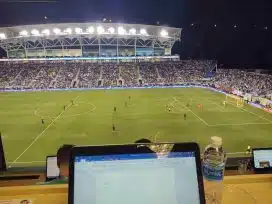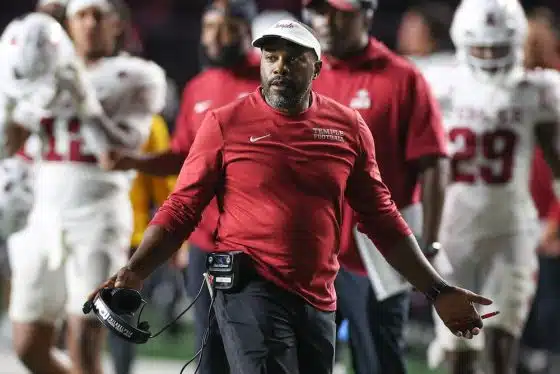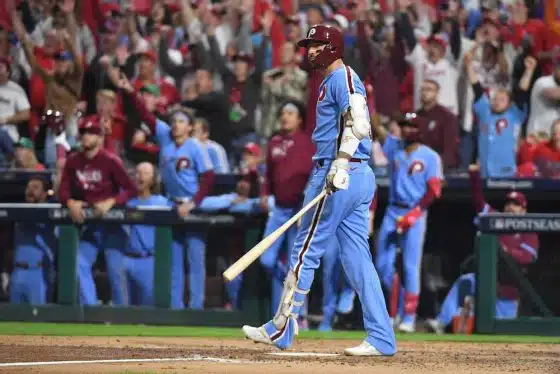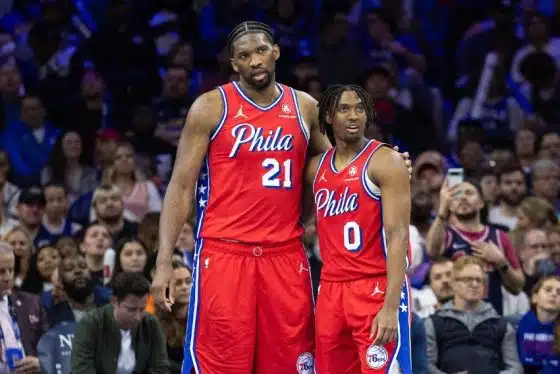Phillies
Key Moments from the Phillies Press Conference About Kapler Firing
The much-anticipated press conference in the wake of the firing of Phillies manager Gabe Kapler took place Friday afternoon. The press conference took about an hour's time and did not seem to shed too much light on the direction of the team.
Here are five highlights from the press conference:
1. The Phillies Front Office Does Says They Do Not Know What Kind of Manager They Want Yet
Huh? Despite the process of deciding the fate of Kapler taking a full 11 days after the conclusion of the season and with two days passing, management spoke of a future meeting in which they will decide what type of manager they will retire. Even though the trio of president Andy MacPhail, general manager Matt Klentak and CEO John Middleton took the same flight to fire Kapler, supposedly they have not talked a new direction.
That includes whether or not the manager will be "old school" or "new school" in approach.
Surely the three have a sense of what direction they are going. Middleton alluded to some potential candidates possibly having preferred destinations, but say they might indicate interest, nonetheless. (Think Joe Maddon being widely connected to the Los Angeles Angels, for example.) At least publicly, they are not willing to tip their hand yet.
2. Middleton Will Give His Manager Criteria and Klentak Will Pursue
What Middleton did indicate is that he will communicate a criteria of his preferred manager, and then leave it up to the baseball operations people to make the decision on a top candidate. Then, as was the case in business, he will personally speak to that person.
So while the statement by Middleton at the time of the Kapler announcement said that Klentak would commence a managerial search immediately, it will still probably be with Middleton's fingerprints on it.
3. MacPhail Explained "If We Don't We Don't" Comments; Kapler's Fate "Comes With the Territory" The sound bite that angered many fans this season included MacPhail stating, "If we don't, we don't" in relation to making the playoffs. MacPhail called those comments a 'mistake" that he "won't make again".
In explaining his perspective, MacPhail said,
"I was trying to make a point. Yeah, it's our goal. But I could not live with myself if, and you would be very unhappy with me two, three, years from now if we had done the only option we had to potentially make an impact in the bullpen or any kind of pitching to try to get to that one game playoff. That just wasn't realistic."
MacPhail praised the bullpen's performance after that date, however.
Matt Breen of the Philadelphia Inquirer asked in response whether or not it should be Kapler who then would take the fall, rather than the front office that set the team.
Middleton jumped in with a response:
"That's the inherent nature of the business. It's been that way for a hundred years, and it will likely be that way a hundred years more. That just goes with the territory. And if the manager can't handle it or doesn't like it, then maybe he shouldn't be the manager. That's just reality."
Scott Palmer then took a question from another reporter.
4. The Phillies Will Pursue Top Free Agents
When asked by NBC Sports Philadelphia's Jim Salisbury about whether or not the Phillies would be active in the "deep end" of free agency:
"Yeah, I do. We'll have to see what the 'deep end' is defined when we get to the free agent period."
Middleton cautioned that the answer is difficult to give at this time because they do not know who the free agents will be this winter since a team could always re-sign a player they currently employ.
5. The Phillies Will Not Exceed the Luxury Tax Unless it is for a World Series
When asked if the Phillies would be willing to exceed the luxury tax, Middleton said that yes, the team would. However, that would only be if it was to put the team over the top to win a World Series. The Phillies will not, Middleton said, overspend to win the second wild card.
Middleton cited adding the likes of Cliff Lee and Roy Halladay as reasons to exceed the luxury tax, referring to past acquisitions in the midst of World Series pursuits.












































